Concept
Alternate Profiles
Different views and formats:
Alternate Profiles ?Profiles (alternative information views) encoded in various Media Types (HTML, text, RDF, JSON etc.) are available for this resource.
- Preferred Labelskos:prefLabel
OGC Federated Marine Spatial Data Infrastructure Pilot 2023 - Connecting Land and Sea for Global Awareness
- URI
- http://www.opengis.net/def/docs/23-027 ↗Go to the persistent identifier link
- Within Vocab
- OGC Documents
| Definitionskos:definition | Rising sea levels together with increasing storm surges are amongst the most challenging issues for coastal communities in the context of global warming. The retreating ice sheets of the Circumpolar Arctic are a key contributor to sea level rise with consequences felt around the world. The Federated Marine Spatial Data Infrastructure (FMSDI) initiative is a key component of OGC and the Marine Domain Working Group. The program is designed to engage with stakeholders from the marine dataspace to identify opportunities to assist, improve, and scale out core business processes complemented by the OGC suite of standards and best practices. The FMSDI-2023 pilot represents the fourth phase of the program with a focus on the interface between land and sea. A primary goal of this pilot is to advance the FMSDI concept to increasing threats posed by climate change. The project is divided into three threads, each with application to distinct geographies. Thread 1: Digital Twin of Land and Sea Interfaces — Singapore With approximately 30% of Singapore’s land mass being less than 5m above sea level, the seamless integration of land and marine data is integral to Singapore’s focus on coastal protection and climate resilience. The management of land and water is separated organizationally between the Singapore Land Authority (SLA) and the Maritime & Port Authority (MPA), respectively. Each agency is responsible for data assets specific to their jurisdiction presenting a challenge for cross-organizational concerns. This theme addresses the geospatial integration requirements through the development of a multi-dimensional Digital Twin of the Singapore coastline. Thread 2: Digital Arctic Connecting Land and Sea — Canada This thread addresses the data integration issues in the context of Digital Twins for the Canadian Arctic. With the loss of sea ice, continuing ocean warming, stronger winds and currents, and accelerated shoreline erosion affecting Arctic communities, efficient data usage and analysis is of the utmost importance for Canada. Figure 1 Thread 3: Integrating Land & Sea for Various Use Cases — Caribbean This thread investigates how data developed primarily for navigation at sea can be used to better understand the opportunities in the Caribbean to support local capacity building and the application of marine data in expanded sea-land contexts. Approach The FMSDI 2023 pilot is managed through the OGC Collaborative Solutions and Innovation (COSI) Program. Each thread is a distinct project with a set of participants tackling specific use cases and scenarios important to the respective project sponsor. Weekly project meetings are scheduled to encourage collaboration between the participants and sponsors and provide checkpoints to ensure the project scope meets the sponsor’s expectations. The FMSDI 2023 pilot also features a series of persistent demonstrators as one of its outputs. These demonstrators are workflows and applications that stakeholders can access for outreach, testing, and experimentation purposes. The demonstrators will be available even after the project is completed and are therefore referenced as persistent, but will only be available until December 2024. These demonstrators showcase how geospatial data can be used in an operational context or highlight the gaps in the resources available online, including data sources, metadata, access processes, and standards. As each participant has a unique solution platform, each has taken different approaches, all of which are available for review by stakeholders. Security concerns, such as authentication and authorization, are unique to each participant and have been communicated to stakeholders and participant contacts. For further details and access to the demonstrators, please refer to the link provided. Common across the three threads is the application of the OGC FAIR principles — Findable, Accessible, Interoperable, and Reusable. Underpinning the use of the FAIR principles is the role of the core OGC Standards and Best Practices. Previous work products related to FMSDI form the core information model while the OGC standards, enhanced through the alignment and support of industry standards such as the IHO S-100 standard, address many of the requirements central to each thread. Attention is drawn to the possibility that some of the elements of this document may be the subject of patent rights. The Open Geospatial Consortium shall not be held responsible for identifying any or all such patent rights. Recipients of this document are requested to submit, with their comments, notification of any relevant patent claims or other intellectual property rights of which the recipients may be aware that might be infringed by any implementation of the standard set forth in this document, and to provide supporting documentation. |
|---|---|
| Broaderbroader | Public Engineering Report |
| http://purl.org/dc/terms/createdcreated | 2024-04-26 |
| Creatorcreator | Glenn Laughlin |
| seeAlsoseeAlso | https://docs.ogc.org/per/23-027.html |
| Statusstatus | valid |
| Notationnotation | 23-027 |
| Alternative LabelaltLabel | 23-027 |
| OGC Federated Marine Spatial Data Infrastructure Pilot 2023 - Connecting Land and Sea for Global Awareness | |
| OGC document typedoctype | Public Engineering Report |
